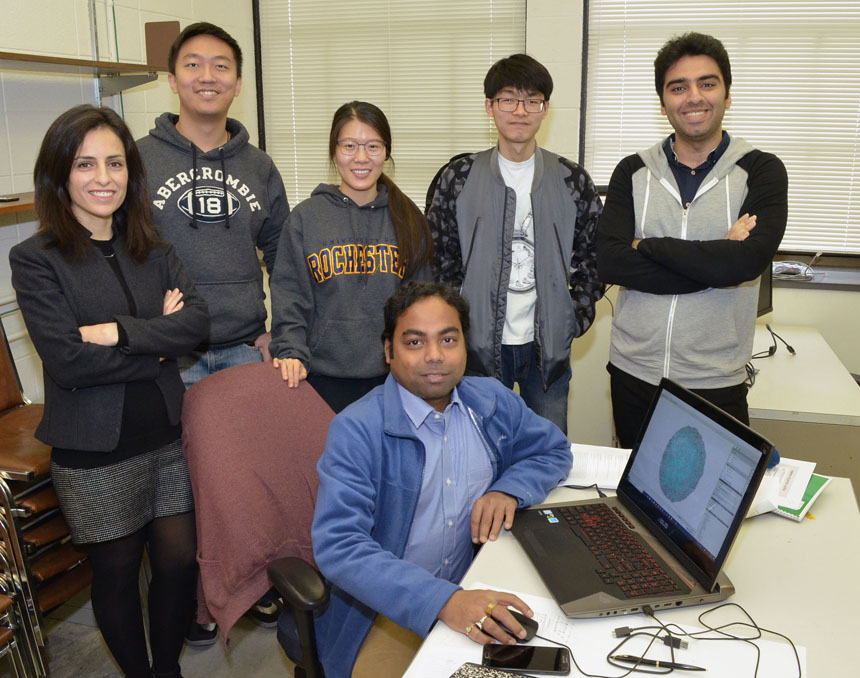Prof. Abdolrahim receives Young Leaders Professional Award

Assistant Professor Niaz Abdolrahim, at left, with members of her group. Postdoctoral student Anupam Neogi is seated. Next to Abdolrahim, from left to right, are PhD students Gus He, Hoamin Liu, Yu Feng, and Ali Khaourshaei Shargh.
Assistant Professor Niaz Abdolrahim has been awarded a 2018 Young Leaders Professional Development Award from the Functional Materials Division of the Minerals, Metals & Materials Society.
The award was created to “enhance the professional development of dynamic young people from the five technical divisions” of the nearly 13,000-member professional society of scientists and engineers who work in industry, academia, and government positions around the world.
The award will be made at the society’s annual meeting in March in Phoenix, AZ.
“This is outstanding recognition for an outstanding young faculty member and a wonderful collaborator,” said John Lambropoulos, professor and chair of the Department of Mechanical Engineering.
Abdolrahim joined the department in July 2015 after completing her postdoctoral appointment at the Massachusetts Institute of Technology’s Department of Materials Science and Engineering.
Her research uses computational techniques to predict the performance of nanoscale metallic materials (NMMs) based on their governing deformation mechanisms. NMMs have nano-sized components, and include nanoscale multilayers, nanowires, nanoparticles and nanoporous materials -- all of which demonstrate superior strength, plasticity, catalytic capacity, radiation resistance and fatigue suppression compared to conventional materials.
Her lab specifically explores multi-scale modeling of nanoscale metallic multilayers, the computational prediction of the structure of semicoherent interfaces, the use of composite pseudoelastic nanowires in metals, and the mechanisms that control the deformation of nanoporous metals under equilibrium and non-equilibrium shock loading conditions.
Last year, Abdolrahim received an NSF grant to use computer simulations to help determine the best way to design nanoporous metals for use as catalysts for fuel cells, air and gas filters, biosensors and other high-tech applications.
Abdolrahim received her PhD in mechanical engineering from Washington State University. Her research was on the multiscale modeling of dislocation mechanisms in nanoscale metals, with scales ranging from the atomistic, to crystal plasticity, to the continuum level via molecular dynamic simulations.
